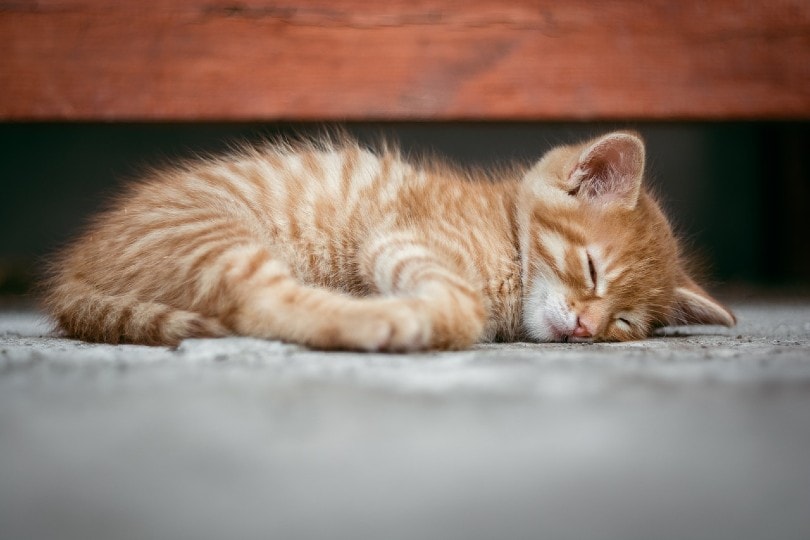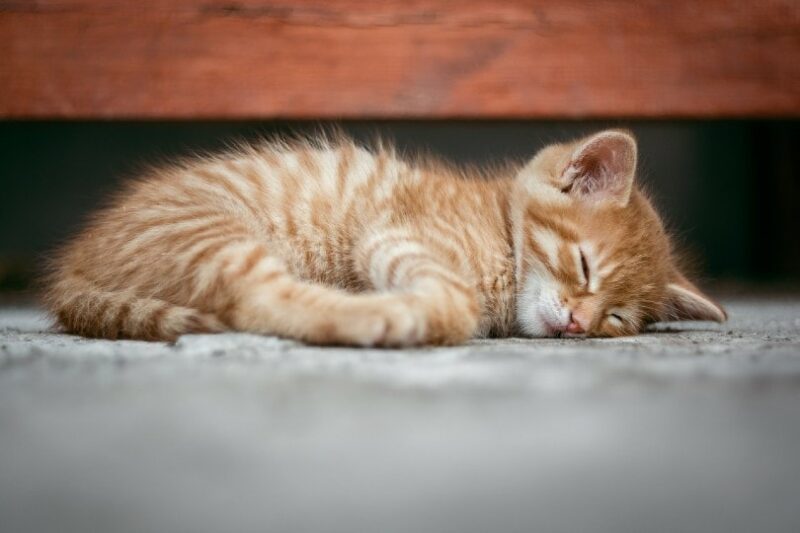Do you ever wonder why your cat likes to sleep under the bed? There are actually several reasons why cats like to do this. In this blog post, we will discuss 15 of the most common reasons why cats like to sleep under the bed. Some of these reasons may surprise you!
Before We Begin
Before we get started, it’s important to note that not all cats like to sleep under the bed. Some cats prefer to sleep in other places, such as on top of the bed or in a sunny spot on the floor. And some cats may only sleep under the bed occasionally. If your cat doesn’t sleep under the bed, don’t worry; there’s nothing wrong with them.
Now that we’ve got that out of the way, let’s take a look at some of the reasons why cats like to sleep under the bed.
The 20 Reasons Cats Sleep Under the Bed
1. Safety
Cats are curious creatures, and they often like to explore every nook and cranny of their home. However, when they feel scared or threatened, they will usually head for the nearest hiding place. Under the bed is a popular choice for many cats, as it provides a sense of security and safety.
The bed acts as a barrier between the cat and whatever is causing them to feel afraid, and it also gives them a good vantage point from which to survey their surroundings. If your cat regularly sleeps under the bed, it may be a sign that they are feeling anxious or stressed. If this is the case, you should talk to your veterinarian about ways to help your cat feel more secure.
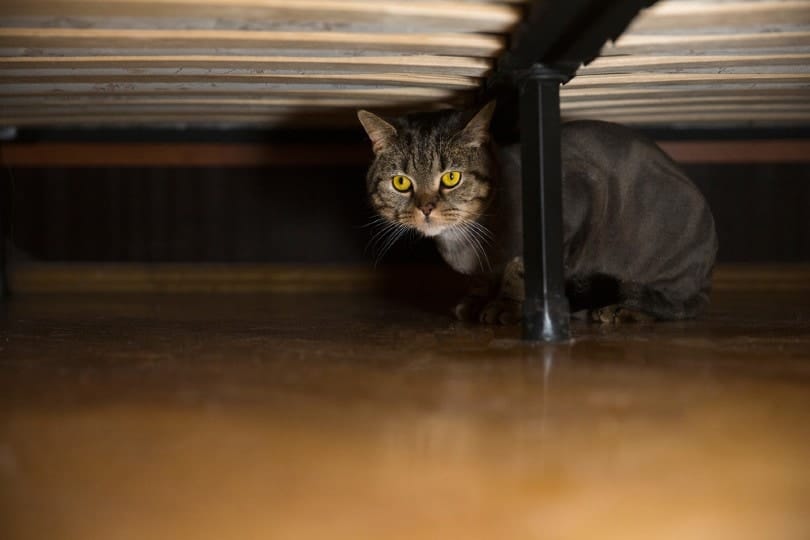
2. Big Changes
Cats are creatures of habit, and big changes can cause them distress. Your cat may be hiding under the bed in response to big changes in your daily routines. For example, if you have a new baby in the house, your cat may also feel more comfortable sleeping under the bed because they are not used to the new noise and activity level in the home.
3. Other Animals
If you have a cat that suddenly starts sleeping under the bed, it could be that there are other pets in the house, particularly dogs, that your cat does not get along with. Cats are naturally curious animals, and they may want to investigate the dogs, which can result in a confrontation. In addition, dogs tend to be much louder than cats, which can be startling or even scary for a cat. As a result, they may feel more comfortable sleeping under the bed where they cannot see or hear the other animals.

4. New Surroundings
Moving to a new house or apartment can be a stressful experience for both you and your cat. While you are busy trying to unpack and get everything set up, your cat may be hiding under the bed, feeling scared and confused, and even sleeping there. It is important to give your cat time to adjust to their new surroundings.
Once they feel comfortable exploring, they will likely start to venture out and investigate their new home. In the meantime, try to create a comfortable space for them under the bed with familiar toys and blankets. With time and patience, your cat will feel right at home in their new environment.
5. Anxiety & Stress
Cats can experience anxiety and stress just like humans. If your cat is feeling anxious or stressed, they may start sleeping under the bed as a way to cope. Common reasons for feline anxiety and stress include changes in routine, new people or animals in the home, loud noises, and moving to a new house.

6. Loud Noises
If you’ve ever wondered why your cat takes refuge under the bed whenever there’s a storm or fireworks going off, it’s not just because they’re afraid of the noise. Loud noises can actually be damaging to your cat’s ears, and sleeping under the bed helps to muffle the sound. In addition to loud noises, there are a number of other things that can cause your cat to seek out a quiet place to sleep.
If there are loud people or animals in the home, your cat may feel overwhelmed and retreat to a place where they feel safe. Or, if the house is feeling particularly chaotic, your cat may just need some time to themselves.
7. Temperature
The temperature may also be a factor in why your cat sleeps under the bed. If it is too hot or too cold, your cat may feel more comfortable sleeping under the bed where the temperature is more stable. Cats prefer temperatures between 68 and 72 degrees Fahrenheit.
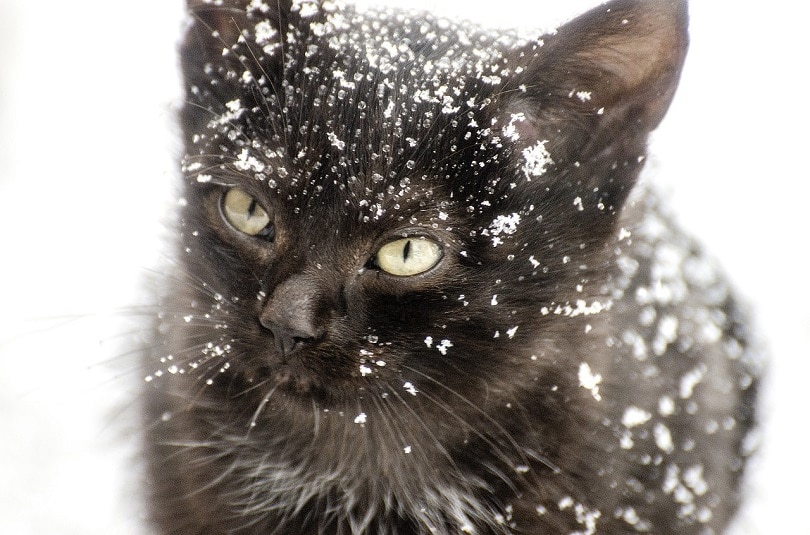
8. Sickness
If your cat is sick, they may start sleeping under the bed as a way to hide from you. Cats are instinctively programmed to hide when they are sick or injured so that they do not appear weak and vulnerable to predators. Additionally, if your cat is sick, they may feel more comfortable sleeping in a smaller space where they can curl up and stay warm.
9. Pregnancy
When a cat is pregnant, she often starts to sleep under the bed for similar reasons as sick cats. Pregnant cats like to curl up in small, warm spaces where they feel safe and secure. This instinct helps to protect them and their unborn kittens from predators.
Additionally, pregnant cats may be more prone to anxiety, which can also lead to increased sleeping under the bed. If your cat is pregnant and suddenly starts sleeping under the bed, it is important to consult with your veterinarian to ensure that there are no underlying health concerns. With proper care and support, your pregnant cat will be able to enjoy a comfortable and safe pregnancy.

10. Instinct
Cats are natural predators, and they like to have a safe place to sleep where they can feel like they are in control. Under the bed is the perfect place for your cat to feel like they are in their own little cave. They may do this instinctively, even as a healthy, happy cat. So, if your cat enjoys spending time under the bed, there’s no need to worry; they’re just following their natural instincts.
11. Privacy
Your cat may also appreciate the privacy that sleeping under the bed provides. If you have young children in the house, they may not want to be disturbed while they are sleeping. Cats are naturally solitary creatures, but even the most social cat needs occasional alone time to unwind.
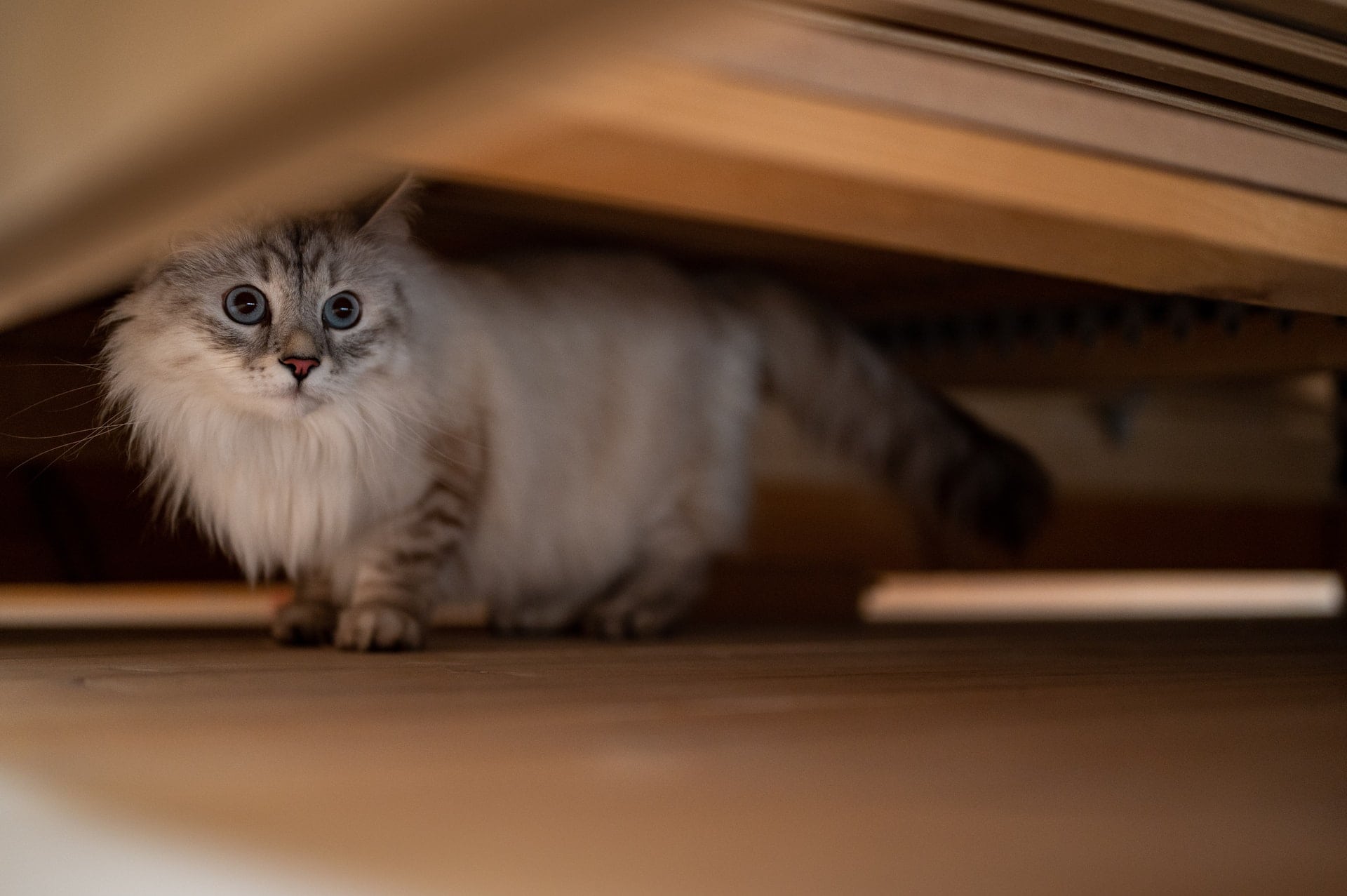
12. It’s Cozy
Another reason your cat may sleep under the bed is because it is cozy and comfortable there. Cats like to sleep in warm, soft places where they can relax. Under the bed is the perfect place for your cat to curl up and take a nap.
13. It’s Dark
Cats also like to sleep in dark, quiet places where they can feel hidden and safe. Under the bed is the perfect place for your cat to escape the bright lights and noise of the world.
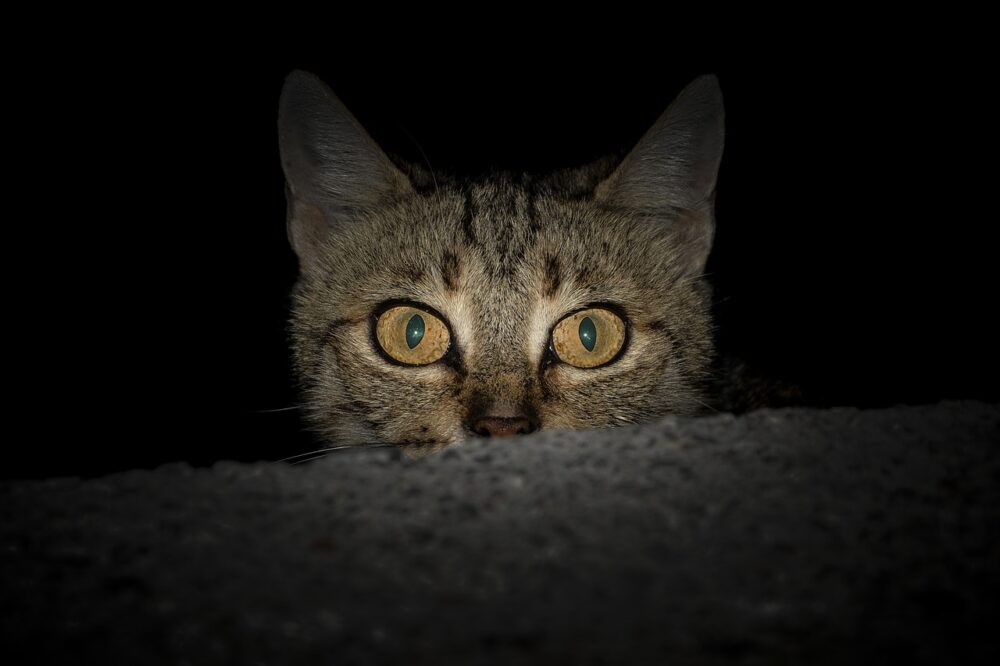
14. They Can’t be Bothered
Sometimes, your cat may just want to be left alone, and they may sleep under the bed to avoid being bothered. If you have a busy household, your cat may appreciate the peace and quiet that sleeping under the bed provides.
15. It’s Their Territory
Your cat may sleep under the bed because it is their territory. Cats are very territorial creatures, and they like to claim their territory by sleeping in it. Under the bed is the perfect place for your cat to claim their territory and feel like they are in charge since other humans and animals may not fit under there to bother them.
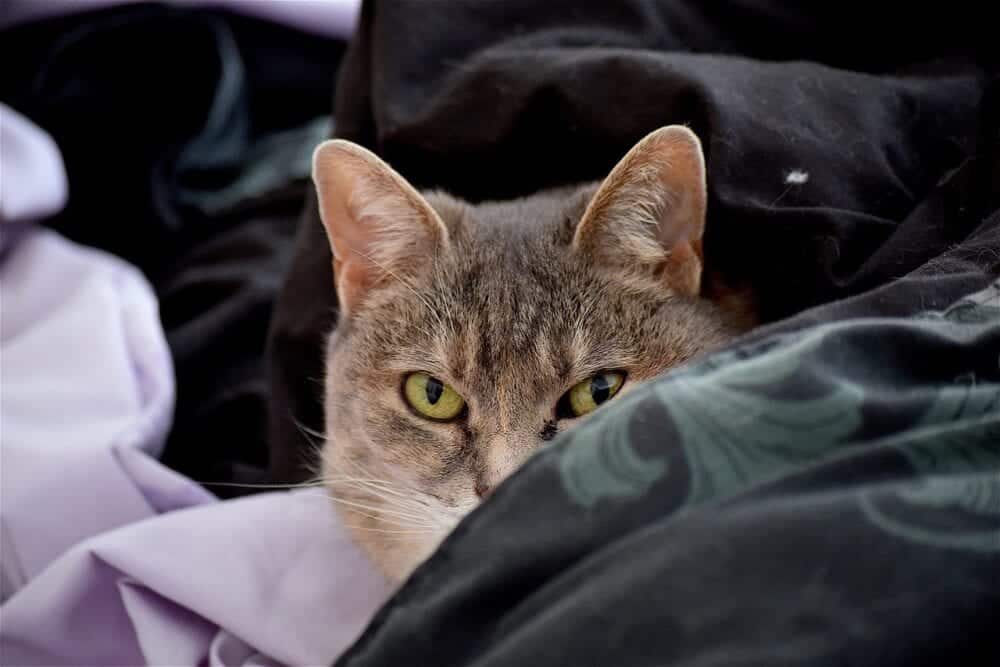
16. They’re Shedding
If your cat is shedding, they may sleep under the bed to avoid getting their fur all over the house. Cats shed their fur as a way to regulate their body temperature. When it is warm outside, cats shed their fur to stay cool, and when it is cold outside, they shed their fur to stay warm.
17. They’re Bored
If your cat is bored, they may start sleeping under the bed as a way to pass the time. Cats sleep for an average of 16 hours per day, so if they are bored, they may just want to take a nap.
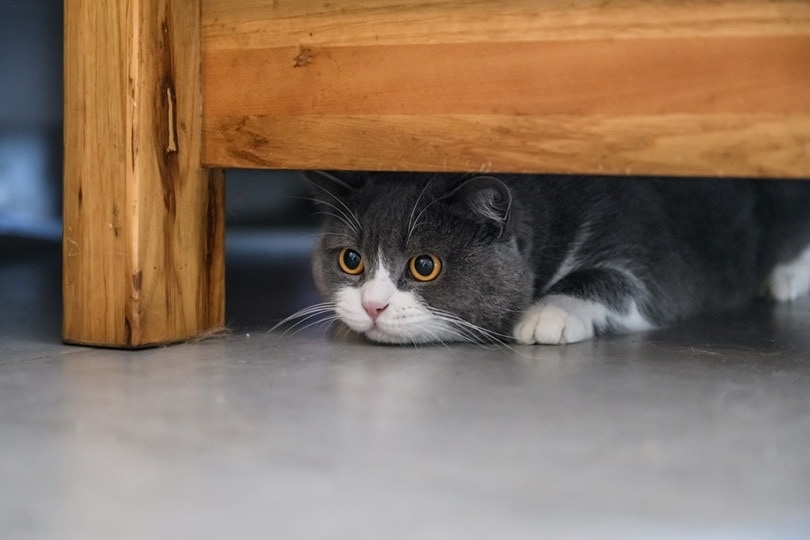
18. They’re Mad at You
If your cat is mad at you, they may start sleeping under the bed as a way to avoid you. Cats are very independent creatures, and they do not like to be bothered when they are mad.
19. It’s Their Favorite Place
Your cat may sleep under the bed because it is simply their favorite place to sleep. Each cat has their own preferences, and some cats just prefer to sleep in small, dark, cozy places. If your cat is sleeping under the bed, it may just be because they like it there.
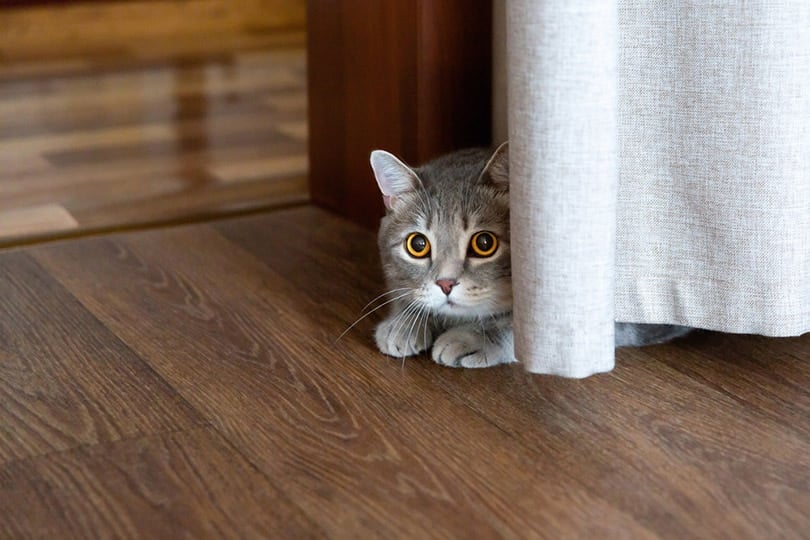
20. They Have Separation Anxiety
If you leave your cat alone for long periods of time, they may start to sleep under the bed as a way to cope with their separation anxiety. Cats are very social creatures, and they do not like to be left alone. If your cat is sleeping under the bed, it may be because they are feeling anxious and stressed when you are not around.

Tips
As you can see, there are many reasons why your cat may sleep under the bed, and most of them are related to managing anxiety and distress. Here are some ways to prevent stress in your cat’s life:
- Keep a regular routine and avoid changes whenever possible.
- Make sure your cat has plenty of hiding places around the house where they can feel safe and secure.
- Provide your cat with toys and scratching posts to help them release pent-up energy in a positive way.
- Talk to your veterinarian about ways to reduce stress in your cat’s life.
- Schedule regular playtime with your cat to help them stay active and entertained
- Make sure your cat has plenty of food and water available at all times.
- Provide your cat with a litter box and clean it regularly.
What You Should Know
If your cat is sleeping under the bed, it is important to make sure they have access to food, water, and a litter box. Additionally, you should check on them regularly to make sure they are not sick or injured. If you are concerned about your cat’s behavior, please talk to your veterinarian.
Conclusion
There are many reasons why your cat may sleep under the bed. In most cases, it is due to anxiety or stress. It can also be a completely normal behavior. If your cat seems otherwise happy and healthy, there’s no need to worry. However, if you are concerned about your cat’s behavior, please talk to your veterinarian.
Featured Image Credit: super-mapio, Pixabay
Contents
- Before We Begin
- The 20 Reasons Cats Sleep Under the Bed
- 1. Safety
- 2. Big Changes
- 3. Other Animals
- 4. New Surroundings
- 5. Anxiety & Stress
- 6. Loud Noises
- 7. Temperature
- 8. Sickness
- 9. Pregnancy
- 10. Instinct
- 11. Privacy
- 12. It’s Cozy
- 13. It’s Dark
- 14. They Can’t be Bothered
- 15. It’s Their Territory
- 16. They’re Shedding
- 17. They’re Bored
- 18. They’re Mad at You
- 19. It’s Their Favorite Place
- 20. They Have Separation Anxiety
- Tips
- What You Should Know
- Conclusion

